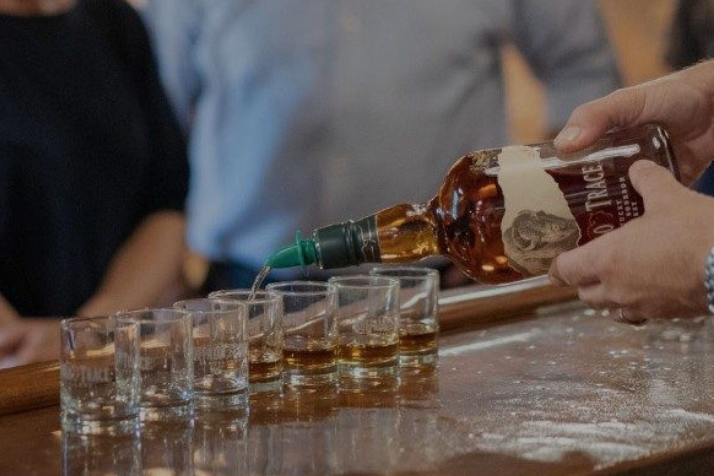Liquor Shortages Are Worsening, But It’s Not Because There Isn’t Enough Booze
If you've been to a liquor store recently, you may have noticed some of your favorite labels missing. There's a problem and it's only growing.
This article is more than 2 years old

If you’ve been to a liquor store recently, you may have noticed some of your favorite labels missing. There’s a problem and it’s only growing. Liquor is the latest product segment to be impacted by the huge and growing number of shortages in stores.
The shortage affects all aspects of the liquor market, from high end to low end. Small business owners have been stocking up on the brands they use most, whenever possible, and that only seems to be making things worse.
So what’s wrong? Most experts and authorities are blaming increased demand, brought on by the opening of restaurants after extended lockdowns. For instance the North Carolina Spirits Association issued this statement as an excuse: “Consumer retail sales in Mecklenburg County ABC stores continues to outpace prior year sales. The increased demand on both sides contribute to the current conditions.”
That may be part of the truth, but it’s not the whole truth. The experts at outlets like Supply Chain Drive point to worsening problems in the overall supply chain. Some of it is related to imports from companies with extreme lockdowns like Italy and New Zealand. In New Zealand, citizens are frequently locked in their homes in the name of COVID protection (they recently shut down the entire country after only one case) and only the essential workers are allowed out. That makes getting things done there, like exporting alcohol, very tough.
Constellation Brands CEO William Newlands confirmed as much in his Q1 earnings call saying, “Global supply chain logistics issues, including shipping delays and transport interruptions, have also created out-of-stocks in certain areas for Kim Crawford and Ruffino which are imported from New Zealand and Italy respectively.”
There may be a much bigger, and more systemic problem at work here, however. The services that used to deliver the freight of liquor companies seem to be falling apart. Jane Morreau, CFO of Brown-Forman (makes of Jack Daniels and other brands), pointed to faltering service from ocean and rail carriers in particular. She says, “We’re at the mercy of the supply chain somewhat in this as things work out.”
It’s not just delivering product that’s the problem, alcohol makers are running into problems getting packing to put their liquor in. The Diageo Supplier Service Hub, created by the brand behind Ciroc, Crown Royal and Tanqueray to help suppliers fill their needs issued this report: “Sourcing raw materials, such as glass and packaging … led to industry shortages in the United States earlier this year.” In short, they can’t get enough bottles to put their product in. And without bottles, they have no way to get it out.
Morreau confirms the problem is industry wide. She says, “The key ingredient that we’ve had some disruptions on is our glass supply.”
With so many problems on top of problems, the situation seems only to be worsening. Liquor is far from the only market segment suffering. With more lockdowns looming, consumers may have to simply make due with their backup brands when they walk into a store and can’t find a bottle of Buffalo Trace.




